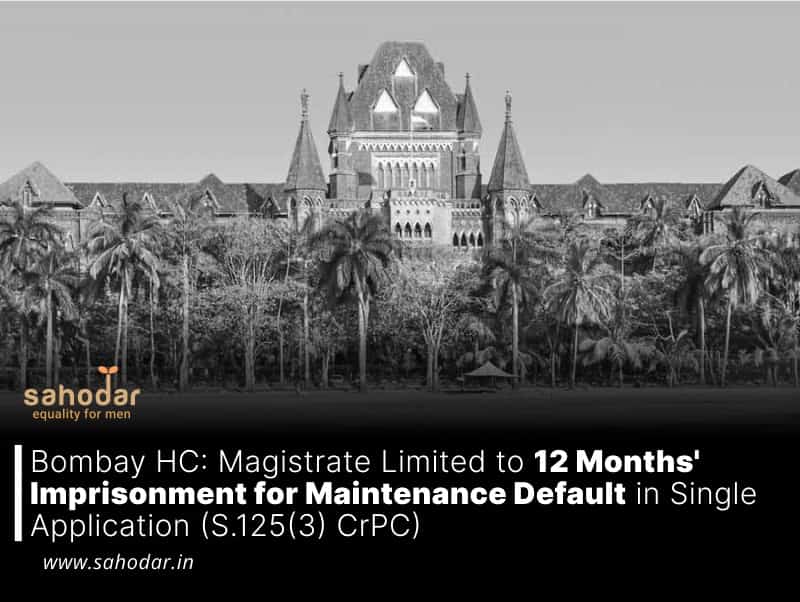The Bombay High Court has issued an order for the release of an individual who had been sentenced to a 47-month term of simple imprisonment for defaulting on interim maintenance payments to his wife and daughter in a domestic violence case.
Justice Sharmila U Deshmukh, in her observation, underscored that pursuant to section 125(3) of the Criminal Procedure Code (CrPC), the Magistrate’s discretionary power to impose imprisonment as a penalty for default is circumscribed to a maximum duration of 12 months. This limitation is enshrined within the proviso, which delineates a temporal constraint of 12 months from the due date of payment.
“by limiting the application for issuance of warrant to a period of 12 months, the power of the Magistrate stands restricted to impose maximum punishment of imprisonment for period 12 months. If an application cannot be filed seeking warrant for recovery of amount remaining unpaid for period of more than one year, there is no question of imprisonment being imposed for a term exceeding one year. The period of 12 months is the outer limit”, the court observed.
In a recent ruling, the court has ordered the release of an individual who was serving a 47-month simple imprisonment sentence for defaulting on maintenance payments to his wife and daughter in a domestic violence case. The verdict was issued by Justice Sharmila U Deshmukh of the Bombay High Court.
The case stemmed from a petition challenging an order by the Metropolitan Magistrate, which sentenced the individual for failing to make maintenance payments as mandated by the Protection of Women from Domestic Violence Act, 2005. The petitioner argued that the magistrate’s sentencing power is restricted to a maximum of 12 months for each month’s default, as per Section 125(3) of the Criminal Procedure Code.
The court’s decision highlighted that while the Domestic Violence Act primarily offers civil remedies, including monetary reliefs such as maintenance, the enforcement of maintenance orders relies on provisions of the Criminal Procedure Code. It clarified that the magistrate’s authority to impose imprisonment for default is constrained to a maximum duration of 12 months, as outlined in the proviso to Section 125(3) of the CrPC.
The ruling emphasized that only 12 months of defaults can be consolidated in one application, with subsequent defaults requiring separate applications for enforcement. Despite the petitioner’s failure to consistently make payments, the court found the magistrate had overlooked this limitation before sentencing the individual to 47 months’ imprisonment.
Consequently, the court quashed the previous order and directed the immediate release of the petitioner. However, it clarified that the respondent wife retains the right to file fresh applications for enforcement of maintenance orders, subject to the consolidation limitation of 12 defaults per application. The magistrate was instructed to consider such applications accordingly.

